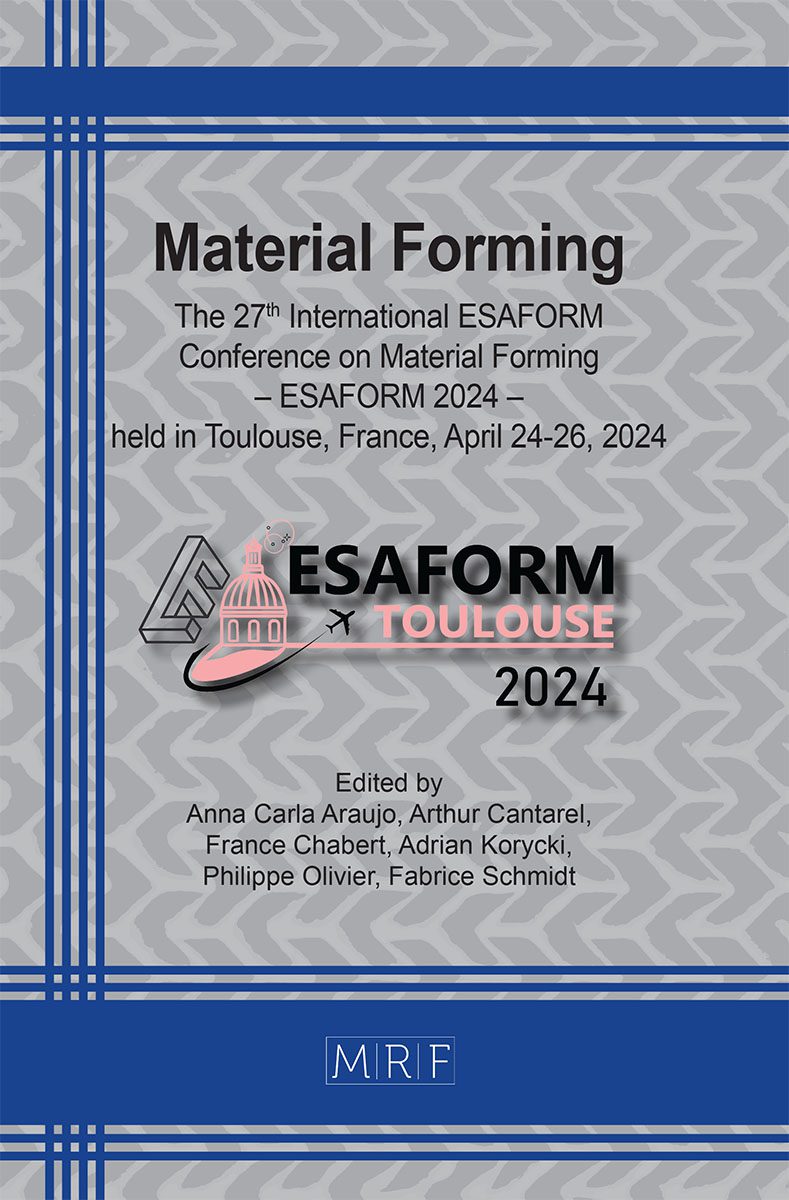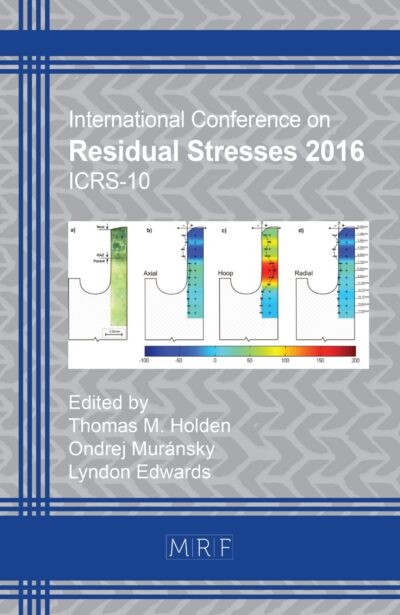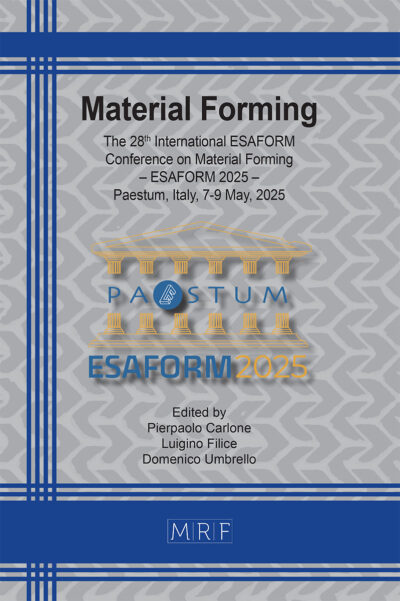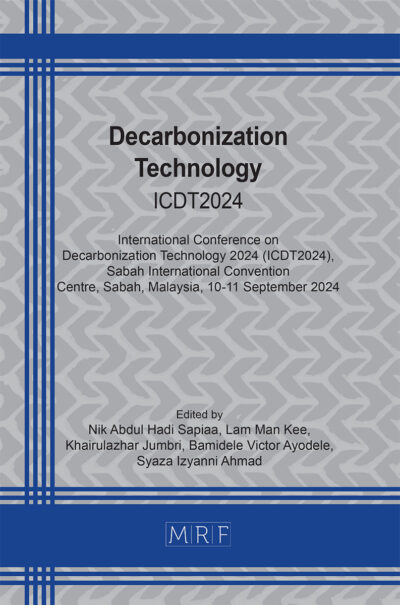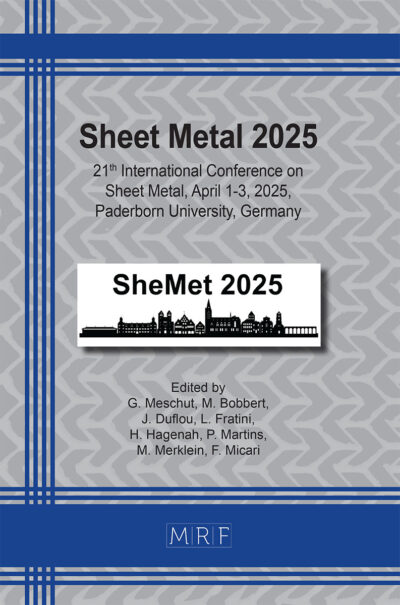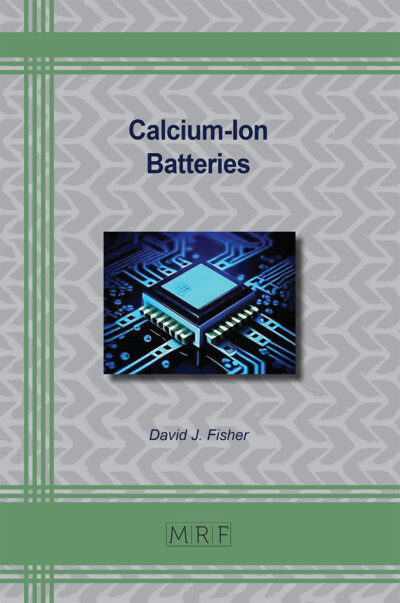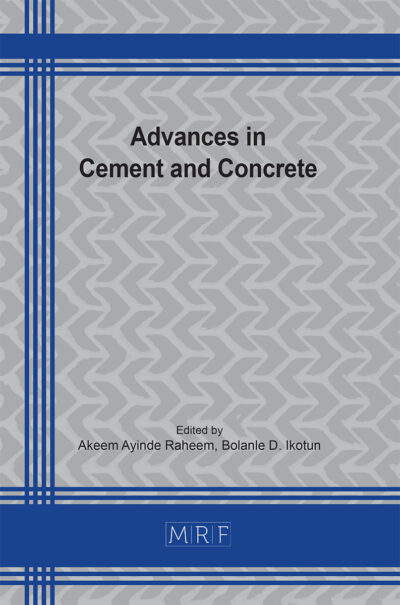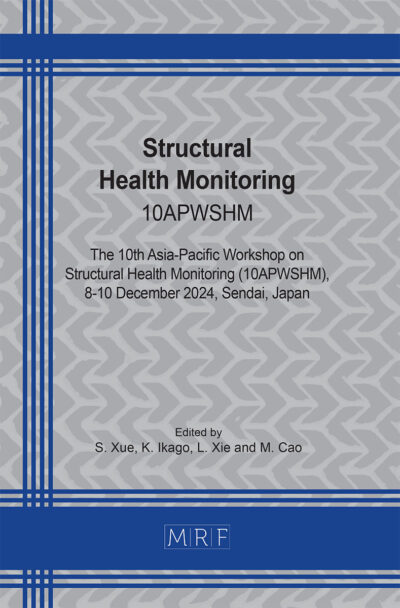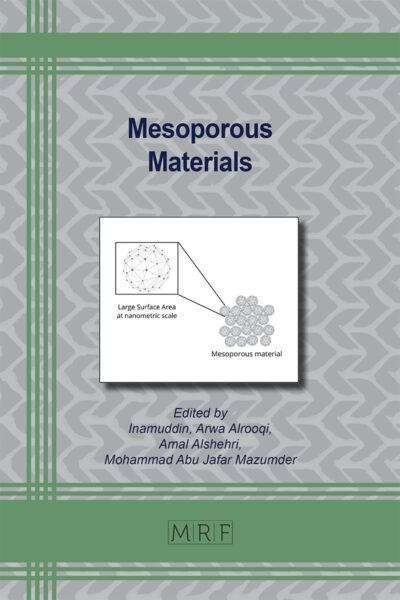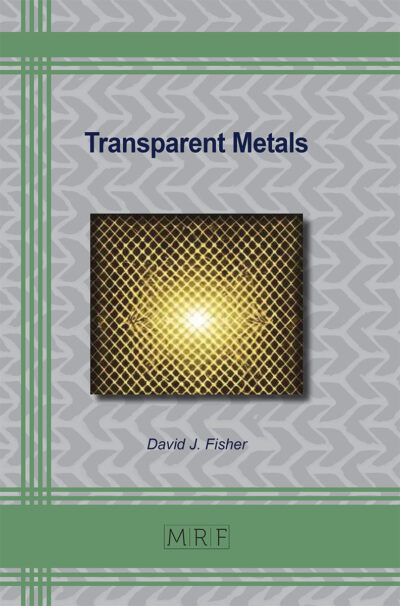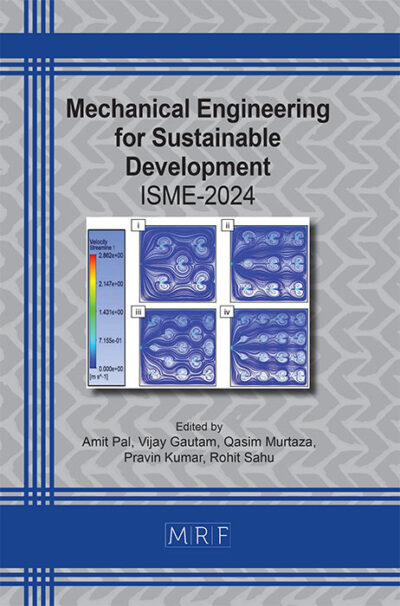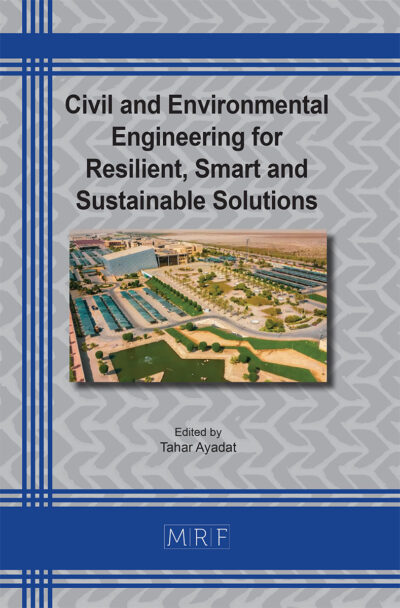–
Form-based manufacturing of aluminium and steel auxiliary joining elements as the basis for an efficient joining operation
BORGERT Thomas, NORDIEKER Ansgar, HOMBERG Werner
download PDFAbstract. Reducing the weight of vehicles can significantly lower the energy or fuel consumed and thus the emissions during operation. One possibility to assess this is the use of a property adapted multi-material systems containing high strength steel, light metals like aluminium or magnesium and fibre reinforced plastics. While expanding the number of materials used new challenges arise for the production and furthermore the joining technology to manufacture the vehicle made of the multi-material systems. One approach to overcome these challenges is to use innovative and adaptable joining techniques which allows the manufacturing of joints of different material combinations. Extensive research activities on the two stage thermo-mechanical joining process with adaptable joining elements was able to demonstrate the great potentials in terms of joining dissimilar materials with good strength. The previously kinematic and path-based fabrication of auxiliary joining elements is modified in this publication to a form-based approach with a perspective of establishing an efficient process chain using easily and cheaply available rods. Based on the new approach to produce the auxiliary joining elements, it can be demonstrated that a reproducible production of the geometry is possible for the investigated steel as well as aluminium material.
Keywords
Joining, Thermomechanical, Steel, Aluminium
Published online 4/24/2024, 7 pages
Copyright © 2024 by the author(s)
Published under license by Materials Research Forum LLC., Millersville PA, USA
Citation: BORGERT Thomas, NORDIEKER Ansgar, HOMBERG Werner, Form-based manufacturing of aluminium and steel auxiliary joining elements as the basis for an efficient joining operation, Materials Research Proceedings, Vol. 41, pp 1623-1629, 2024
DOI: https://doi.org/10.21741/9781644903131-180
The article was published as article 180 of the book Material Forming
![]() Content from this work may be used under the terms of the Creative Commons Attribution 3.0 license. Any further distribution of this work must maintain attribution to the author(s) and the title of the work, journal citation and DOI.
Content from this work may be used under the terms of the Creative Commons Attribution 3.0 license. Any further distribution of this work must maintain attribution to the author(s) and the title of the work, journal citation and DOI.
References
[1] W. Cai, K.-H. Lai, C. Liu, F. Wei, M. Ma, S. Jia, Z. Jiang; L. Lv, Promoting sustainability of manufacturing industry through the lean energy-saving and emission-reduction strategy, Sci. Total Environ. 665 (2019) 23–32. https://doi.org/10.1016/j.scitotenv.2019.02.069
[2] G. Pina Cipriano, A. Ahiya, J.F. dos Santos, P. Vilaça, S.T. Amancio-Filho, Single-phase friction riveting: metallic rivet deformation, temperature evolution, and joint mechanical performance, Weld World 64 (2020) 47–58. https://doi.org/10.1007/s40194-019-00803-3
[3] S.A. Choudry, J. Kaspar, U. Alber, D. Landgrebe, Integration of an Assessment Methodology for the Selection of Joining Technologies in Lightweight Engineering, Procedia CIRP 70 (2018) 217–222. https://doi.org/10.1016/j.procir.2018.02.034
[4] M. Haghshenas, A.P. Gerlich, Joining of automotive sheet materials by friction-based welding methods: A review, Engineering Science and Technology, an International Journal 21 (2018) 130–148. https://doi.org/10.1016/j.jestch.2018.02.008
[5] S. Rosenthal, F. Maaß, M. Kamaliev, M. Hahn, S. Gies, A.E. Tekkaya, Lightweight in Automotive Components by Forming Technology, Automot. Innov. 3 (2020) 195–209. https://doi.org/10.1007/s42154-020-00103-3
[6] G. Meschut, M. Merklein, A. Brosius, D. Drummer, L. Fratini, U. Füssel, M. Gude, W. Homberg, P. Martins, M. Bobbert, et al., Review on mechanical joining by plastic deformation, Journal of Advanced Joining Processes 5 (2022) 100113. https://doi.org/10.1016/j.jajp.2022.100113
[7] G. Çam, S. Mistikoglu, Recent Developments in Friction Stir Welding of Al-alloys, J. of Materi. Eng. and Perform. 23 (2014) 1936–1953. https://doi.org/10.1007/s11665-014-0968-x
[8] D. Kumar Rajak, D.D. Pagar, P.L. Menezes, A. Eyvazian, Friction-based welding processes: friction welding and friction stir welding, Journal of Adhesion Science and Technology 34 (2020) 2613–2637. https://doi.org/10.1080/01694243.2020.1780716
[9] A. Heidarzadeh, S. Mironov, R. Kaibyshev, G. Çam, A. Simar, A. Gerlich, F. Khodabakhshi, A. Mostafaei, D.P. Field, J.D. Robson, et al., Friction stir welding/processing of metals and alloys: A comprehensive review on microstructural evolution, Progress in Materials Science 117 (2021) 100752. https://doi.org/10.1016/j.pmatsci.2020.100752
[10] A. Heidarzadeh, Tensile behavior, microstructure, and substructure of the friction stir welded 70/30 brass joints: RSM, EBSD, and TEM study, Archives of Civil and Mechanical Engineering 19 (2019) 137–146. https://doi.org/10.1016/j.acme.2018.09.009
[11] K. Martinsen, S.J. Hu, B.E. Carlson, Joining of dissimilar materials, CIRP Annals 64 (2015) 679–699. https://doi.org/10.1016/j.cirp.2015.05.006
[12] F. Lambiase, S.I. Scipioni, C.-J. Lee, D.-C. Ko, F. Liu, A State-of-the-Art Review on Advanced Joining Processes for Metal-Composite and Metal-Polymer Hybrid Structures, Materials (Basel) 14 (2021). https://doi.org/10.3390/ma14081890
[13] M. Merklein, M. Jäckisch, C.-M. Kuball, D. Römisch, S. Wiesenmayer, S. Wituschek, Mechanical joining of high-strength multi-material systems − trends and innovations, Mechanics & Industry 24 (2023). https://doi.org/10.1051/meca/2023013
[14] C. Wischer, W. Homberg, A contribution on versatile process chains: joining with adaptive joining elements, formed by friction spinning, Prod. Eng. Res. Devel. 16 (2022) 379–388. https://doi.org/10.1007/s11740-021-01094-8
[15] C. Wischer, W. Homberg, Further Development of an Adaptive Joining Technique Based on Friction Spinning to Produce Pre-Hole-Free Joints, KEM 926 (2022) 1468–1478. https://doi.org/10.4028/p-1n6741
[16] T. Borgert, M. Henke, W. Homberg, Investigations on the Influences of the Thermomechanical Manufacturing of Aluminium Auxiliary Joining Elements, JMMP 7 (2023) 147. https://doi.org/10.3390/jmmp7040147

